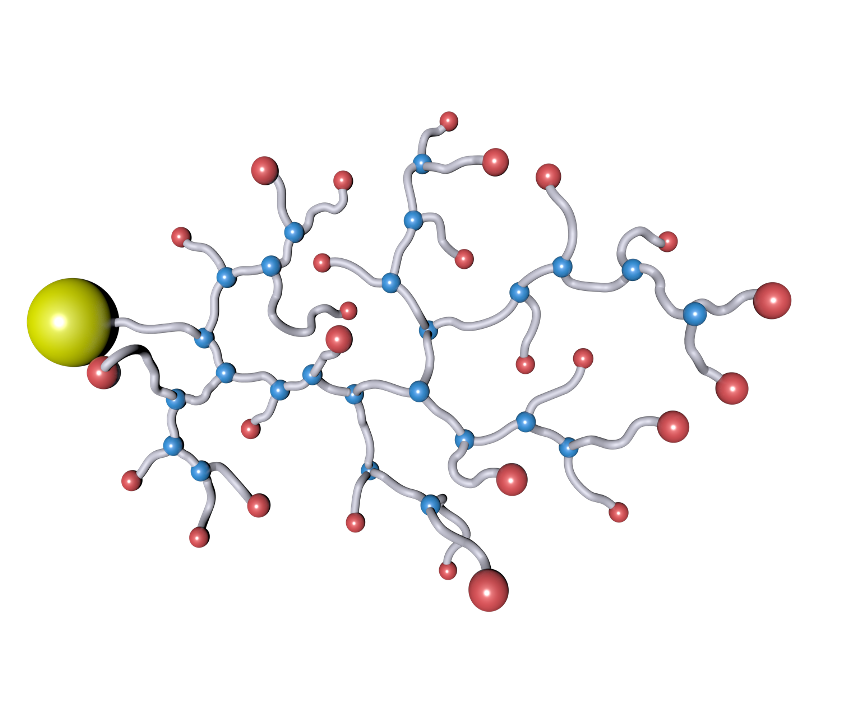Exploring the Varied Applications and Advantages of Polymers in Different Industries
Polymers, with their diverse variety of homes and functionalities, have ended up being vital in numerous industries, each gaining distinct advantages from their application. From improving security and efficiency in the auto industry to transforming medical tools in the medical care industry, polymers play a crucial duty.
Automotive Market Applications
Polymers play a pivotal role in boosting the efficiency and longevity of numerous elements within the automobile field. These functional products are thoroughly made use of in the manufacturing of various components, varying from indoor parts to under-the-hood applications. One prominent use polymers in the automobile industry remains in the production of lightweight components. By replacing typical metal get rid of polymer-based alternatives, automobiles can accomplish enhanced gas effectiveness without jeopardizing on strength or security.

Health Care Sector Advantages
In various health care applications, the benefits of using polymers are widely acknowledged for their varied variety of valuable residential or commercial properties. Polymers play an important duty in the health care sector because of their adaptability, biocompatibility, and cost-effectiveness. Among the key benefits of polymers in health care is their capability to be customized to particular requirements, such as adaptability, longevity, and biodegradability, making them suitable for a wide variety of clinical applications.
Polymer-based products are extensively used in clinical tools, such as catheters, implants, prosthetics, and medicine distribution systems, due to their biocompatibility and capacity to resemble all-natural tissues. These products can lower the threat of allergies or rejections, boosting person safety and security and end results. In addition, polymers are lightweight, making them appropriate for wearable medical gadgets and making certain client comfort.
Additionally, polymers make it possible for the development of cutting-edge treatment techniques, such as hydrogels for tissue engineering and nanocomposites for targeted medicine shipment. Their ease of processing and sanitation makes them necessary for preserving high criteria of hygiene in healthcare setups. Generally, the varied benefits of polymers add considerably to improvements in medical modern technology and individual care.
Ecological Benefits of Polymers

In addition, polymers can add to power cost savings due to their light-weight nature. In markets such as transport, lightweight polymer products can help in reducing gas usage and greenhouse gas emissions. Furthermore, polymers can make it possible for the growth of energy-efficient items such as insulation products that improve power conservation in buildings.
Moreover, polymers play an essential role in continue reading this decreasing water air pollution. The usage of polymer-based filtering systems can efficiently get rid of contaminants and pollutants from wastewater, safeguarding water resources and communities. Generally, the ecological advantages of polymers make them useful properties in promoting sustainability and eco-friendly techniques throughout numerous sectors.
Polymers in Electronics and Innovation
Taking into consideration the boosting need for ingenious and sustainable solutions in modern-day sectors, the assimilation of sophisticated polymer innovations in the realm of electronics and innovation has actually arised as a crucial technique for driving effectiveness and performance. Polymers have reinvented the electronic devices industry by making it possible for the manufacturing of lighter, much more versatile, and long lasting electronic devices. From mobile phones to medical devices, polymers play an essential function in boosting item design and capability.
One considerable benefit of polymers in electronics is their protecting residential or commercial properties, which why not look here assist protect fragile digital components from ecological variables and electrical disturbance. Furthermore, polymers are crucial in the advancement of flexible screens, wearable technology, and published electronic devices, using endless opportunities for producing wise and interconnected gadgets.
Furthermore, making use of polymers in electronic product packaging has actually brought about improvements in miniaturization and thermal administration, enhancing the general performance and dependability of electronic systems. As innovation remains to advance, the convenience and adaptability of polymers will definitely drive further advancement in the electronic devices market, shaping the future of innovation.
Role of Polymers in Construction and Framework
Polymers offer numerous advantages in the building market due to their convenience, toughness, and cost-effectiveness. One key function of polymers in building is their usage in coverings and sealants, offering protection against ecological aspects such as moisture, UV radiation, and deterioration.
Additionally, polymers play an important duty in sustainable building and construction practices by enabling the advancement of energy-efficient structures. Insulating products made from polymers assist manage interior temperature levels, minimizing the requirement for heating and cooling down systems and ultimately decreasing energy usage. In addition, using polymer-based composites in infrastructure projects such as bridges and roads improves their longevity and minimizes upkeep expenses. Overall, the unification of polymers in construction and infrastructure displays their considerable influence on modern-day engineering techniques.
Final Thought
In verdict, polymers play a vital visit the website role in various markets such as vehicle, healthcare, environmental, electronics, and building and construction. Their versatile residential properties make them beneficial in creating innovative solutions and items. From improving gas effectiveness in vehicles to improving medical tools, polymers provide various advantages. In addition, their effect on reducing waste and advertising sustainability highlights their value in contemporary applications. The extensive use polymers shows their substantial contribution to progressing innovation and improving lifestyle.